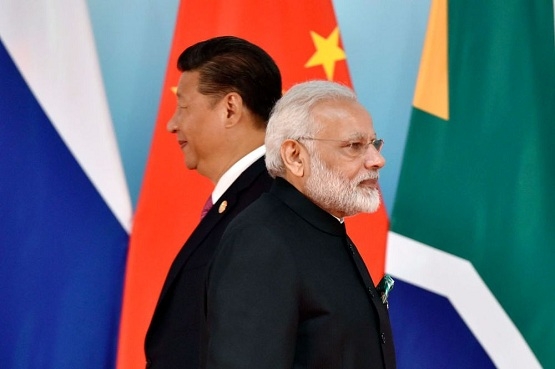World to face recession, India, China likely exception: UN
| Date :01-Apr-2020 |

By Yoshita Singh :
A report by United Nations Conference on Trade and Development (UNCTAD), the UN trade and development body, estimates loss of trillions of dollars of global income due to the coronavirus pandemic. It however did not give a detailed explanation as to why and how India and China will be the exceptions as the world faces a recession and loss in global income that will impact developing countries.
UNITED NATIONS, THE world economy will go into recession this year with a predicted loss of trillions of dollars of global income due to the coronavirus pandemic, spelling serious trouble for developing countries with the likely exception of India and China, according to a latest UN trade report. With two-thirds of the world’s population living in developing countries facing unprecedented economic damage from the COVID-19 crisis, the UN is calling for a USD 2.5 trillion rescue package for these nations. According to the new analysis from United Nations Conference on Trade and Development (UNCTAD), the UN trade and development body titled ‘The COVID-19 Shock to Developing Countries: Towards a ‘whatever it takes’ programme for the two-thirds of the world’s population being left behind’, commodity-rich exporting countries will face a USD 2 trillion to USD 3 trillion drop in investments from overseas in the next two years.
The UNCTAD said that in recent days, advanced economies and China have put together massive Government packages which, according to the Group of 20 leading economies (G20), will extend a USD 5 trillion lifeline to their economies. “This represents an unprecedented response to an unprecedented crisis, which will attenuate the extent of the shock physically, economically and psychologically,” it said. It added that while the full details of these stimulus packages are yet to be unpacked, an initial assessment by the UNCTAD estimates that they will translate to a USD 1 trillion to USD 2 trillion injection of demand into G20 economies and a two percentage point turnaround in global output.
“Even so, the world economy will go into recession this year with a predicted loss of global income in trillions of dollars. This will spell serious trouble for developing countries, with the likely exception of China and the possible exception of India,” the UNCTAD said. The report, however, did not give a detailed explanation as to why and how India and China will be the exceptions as the world faces a recession and loss in global income that will impact developing countries. Further, given the deteriorating global conditions, fiscal and foreign exchange constraints are bound to tighten further over the course of the year.
The UNCTAD estimates a USD 2 trillion to USD 3 trillion financing gap facing developing countries over the next two years. In the face of a looming financial tsunami this year, the UNCTAD proposes a four-pronged strategy that could begin to translate expressions of international solidarity into concrete action. This includes a USD 1 trillion liquidity injection for those being left behind through reallocating existing special drawing rights at the International Monetary Fund; a debt jubilee for distressed economies under which another one trillion dollars of debts owed by developing countries should be cancelled this year and a 500 billion dollars Marshall Plan for a health recovery funded from some of the missing official development assistance (ODA) long promised but not delivered by development partners.
The speed at which the economic shockwaves from the pandemic has hit developing countries is dramatic, even in comparison to the 2008 global financial crisis, the UNCTAD said. “The economic fallout from the shock is ongoing and increasingly difficult to predict, but there are clear indications that things will get much worse for developing economies before they get better,” UNCTAD Secretary-General Mukhisa Kituyi said.
The report shows that in two months since the virus began spreading beyond China, developing countries have taken an enormous hit in terms of capital outflows, growing bond spreads, currency depreciations and lost export earnings, including from falling commodity prices and declining tourist revenues. Even as advanced economies are discovering the challenges of dealing with a growing informal workforce, this remains the norm for developing countries, amplifying their difficulties in responding to the crisis.